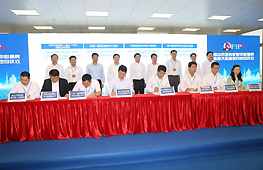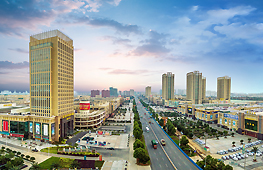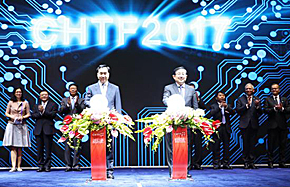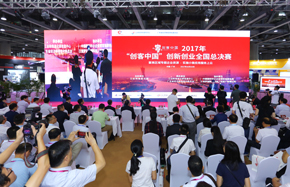Introduction
The Dalian Institute of Chemical Physics (DICP) is located in the beautiful port city of Dalian, China. In the past half century, research at DICP has closely reflected the economic and scientific needs of China. The Institute has built up an impressive portfolio of achievements, principally in the fields of catalysis, chemical engineering, chemical lasers, molecular reaction dynamics, organic synthesis, and chromatography for modern analytic chemistry and biotechnology. These achievements have greatly contributed to the economic and technological development of China. Research at DICP is now focused on energy-related topics, and the Institute's current development strategy is summarized as follows: "DICP focuses on sustainable energy research and coordinates the development of environment optimization, biotechnology and advanced material in a multidisciplinary atmosphere by strengthening technological integration and innovation. DICP aims to play indispensable roles in national economy and security, and to become a leading research institute in the world."
Since its founding, DICP has produced numerous outstanding scientists and high-quality engineers who have developed both strong domestic and international reputations. A total of 17 of DICP scientists have been elected to the Chinese Academy of Sciences and the Chinese Academy of Engineering (CAE), three to the Academy of Sciences for the Developing World (TWAS), and one to Academia European. DICP currently has over 1,000 staff members, 954 graduate students, and 104 post-doctors.Through the efforts of the scientists, staff, and students, scientific research and competitive capacities at DICP continue to grow, the strategic plan continues to improve, collaborations continue to expand, and dedicated research programs continue to influence their fields. The quality of the basic research at DICP is reflected in the number of publications in high-level journals and patents and valuable technologies for industry that are continually developed at the Institute. At the same time, DICP's innovative research for national security has received numerous commendations. By 2013, DICP faculty have already received 86 national awards for science and technology (S&T) and more than 230 provincial-level S&T awards.
In 1999, the former president Jiang Zemin gave an on-site appraisal of DICP and directed the Institute to "carry out the Knowledge Innovation Program (KIP)* and make DICP as a leading institution in the world." In 2002, the former president Hu Jintao also gave an on-site appraisal, encouraging the Institute to "continue to strive for technological and scientific advances, to fully adopt the spirit of innovation, to advance the Knowledge Innovation Program, to generate greater progress in science and technology and human resources, and to make important contributions to China's scientific, economic, and societal development."





















